 The First International Conference on Experimental Linguistics,ICEL2025
The First International Conference on Experimental Linguistics,ICEL2025 The First International Conference on Experimental Linguistics,ICEL2025
The First International Conference on Experimental Linguistics,ICEL2025Introduction to keynote speakers (in alphabetical order of surnames):

Aijun LI
Aijun LI is a research fellow, the deputy director of the Institute of Linguistics, Chinese Academy of Social Sciences (CASS), and the head of the CASS Key Laboratory of Linguistics. She received her master’s and bachelor’s degrees from the Department of Computer Science at Tianjin University, as well as her Ph.D from the School of Human Information Science at JAIST, and. She currently serves as the vice president of the Chinese Linguistic Society, a member of the Oriental COCOSDA steering committee, and a member of the Academic Committee of the Ministry of Public Security’s Key Laboratory of Intelligent Speech Technology. She is also the chief editor of the Chinese Journal of Phonetics and on the editorial boards for Studies of Chinese Language, Minority Languages of China and China Scientific Data. Her recent research has focused on intonation typology, first and second language acquisition, and the production and perception of speech in interaction that is closely related to AI.
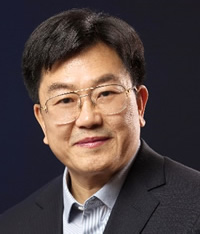
Chengqing ZONG
Chengqing ZONG, is Research Fellow and doctoral supervisor at Institute of Automation, Chinese Academy of Sciences. He is an IEEE Fellow, an ACL Fellow, a CAAI Fellow, and a CCF Fellow. His research interests include natural language processing, machine translation and cognitive language computing. He has led more than 10 projects supported by the Natural Science Foundation of China, the National Key Research and Development Program of China, and others. He has published more than 200 papers, 6 books, and two translated works. He is serving as the President of the Association for Computational Linguistics, and vice chairman of Chinese Information Processing Society of China. He previously served as the President of the Asian Federation of Natural Language Processing, Program Committee Co-Chair for top-tier international conferences such as ACL 2015, and General Conference Chair for ACL 2021. He has received numerous awards, including the Second Prize of the National Scientific and Technological Progress Award of China, the First Prize of Beijing Science and Technology Award, and the Second Prize of the Scientific and Technological Award of the Ministry of Education. He was honored with the titles of “the honorary title of outstanding teacher”, “the outstanding supervisor of the Chinese Academy of Sciences” and “the outstanding teaching fellow Li Pei at UCAS”. He enjoys special allowance awarded by the State Council of China.
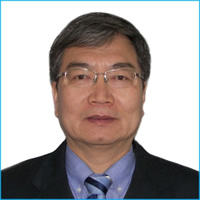
Feng SHI
Feng SHI, is the honorary President of the Institute of Linguistics at Nankai University, the honorary editor of Nankai Linguistics and Experimental Linguistics, deputy editor of Journal of Chinese Linguistics, apart from serving as a member of the editorial board for Lingua. He is a member of National Putonghua Pronunciation Review Committee of the Ministry of Education, member of the Academic Advisory Committee of the World Chinese Language Teaching Association. During 2023-2024, he served as President of the International Association of Chinese Linguistics. His research focuses on experimental linguistics, language evolution, and language contact and acquisition. He has authored more than twenty books, such as Sound Pattern: The Intersection of Phonetics and Phonology, Tone Pattern: Foundation of Experimental Linguistics, Auditory Pattern: The Preliminary Exploration of the Perceptual Features of Chinese Phonetics, Prosodic Pattern: The Combination of Phonetics with Semantics, Syntax, and Pragmatics, Collected Autumn Leaves(Qiuye Ji) and Collected Silver Ages(Yinling Ji). He has translated and co-translated more than twenty works, including Chao Yuenren’s Continuity: A Study in Methodology, William Lobov’s Principles of Linguistic Change: Internal Factors, Principles of Linguistic Change: Social Factors, Principles of Linguistic Change: Cognitive and Cultural Factors, and Wang Shiyuan’s Explorations in Language. He has published over 270 articles in both domestic and international journals.

Feng GU
Feng GU, is an Associate Professor in the College of Literature and Journalism at Sichuan University, head of the Neurocognitive Laboratory for Linguistics and Semiotics, and a master’s supervisor. He holds a Ph.D. in Neurobiology from the University of Science and Technology of China and completed his postdoctoral research at the University of Hong Kong. His research primarily explores the neural mechanisms underlying Chinese phonetics, orthography, lexical processing, syntax, semantics, and second language acquisition. He has published more than 20 academic papers in international journals, including NeuroImage, Cortex, Psychophysiology, Neuroscience, and the Journal of Neurolinguistics.
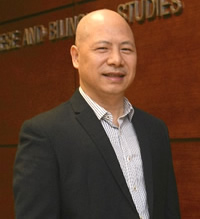
Gang PENG
Gang PENG, is the tenured Full Professor in the Department of Chinese and Bilingual Studies at the Hong Kong Polytechnic University, doctoral supervisor, Dean of the Research Centre for Language, Cognition and Neuroscience. He was rewarded as RGC Research Fellow by the University Grants Committee in 2021. He has published research articles in various high-profile international journals such as Proceedings of the National Academy of Sciences of the United States of America, Autism, Autism Research, and Chinese Development. In recent years, his research team has applied behavioral methods and neuroimaging techniques to investigate children’s speech development, neural mechanisms underlying speech disorders in children, and the impact of the age-related cognitive decline on speech perception. Additionally, they have been exploring the feasibility of speech rehabilitation training from the perspective of brain.
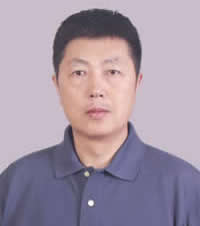
Jiahong YUAN
Jiahong YUAN, is a professor in the School of Humanities and Social Sciences at the University of Science and Technology of China (USTC). He received his Ph.D. in Linguistics from Cornell University in 2004. Before joining USTC, He held positions in the Department of Linguistics and the Linguistic Data Consortium at the University of Pennsylvania, Liulishuo Silicon Valley AI Lab, and Baidu Research Institute. His main research areas include phonetics and the integration of linguistics and artificial intelligence. He has led multiple research projects funded by the U.S. National Science Foundation, the UK Economic and Social Research Council, the National Social Science Fund of China, among others. His current research focuses on the early detection and prediction of Alzheimer’s disease through spoken language, investigating the origin and evolution of Chinese tones with machine learning methods, and exploring model-brain alignment from the perspective of tone recognition.
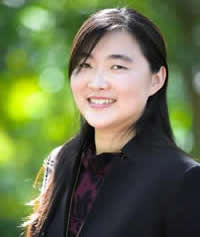
Jianjing KUANG
Jianjing KUANG, is an Associate Professor in the Department of Linguistics at the University of Pennsylvania and Director of the Penn Phonetics Laboratory. At Penn, she is also a core faculty member of the MindCORE Initiative, the university’s hub for integrative studies of the mind, and the Center for East Asian Studies. Dr. Kuang has held numerous leadership roles in the field of speech science, currently serving as an Associate Editor for the Journal of the Acoustical Society of America and on several other editorial boards. She has also been organizing and chairing prominent international linguistic conferences such as LabPhon and Speech Prosody. Dr. Kuang’s expertise lies in phonetics and laboratory phonology, focusing on the multidimensionality and variability of speech categorization. Her research advances the understanding of phonological contrasts, integrating production and perception processes to explain mechanisms of phonological acquisition, historical sound change, and their connection to broader linguistic and cognitive systems. Dr. Kuang’s work is recognized for advancing the understanding of multidimensional phonetic spaces, particularly in tonal and prosodic systems, and for her innovative studies on voice quality and its role in language processing. She adopts an interdisciplinary approach that combines experimental phonetics, extensive cross-linguistic fieldwork, computational modeling, and insights from cognitive science, creating a holistic framework to study complex speech phenomena. Her findings have significant implications for linguistic theory, speech technology, and cognitive science.

Jiangping KONG
Jiangping Kong is a professor and doctoral supervisor of the Department of Chinese Language and Literature at Peking University. He is currently the director of the National Laboratory of Language Sciences at Peking University and the Director of the Phonetics Branch of the Chinese Language Society. He presided over the major social science projects of China "Digital Methods and Theoretical Research on the Protection and Inheritance of Chinese Spoken Language and sound Culture" and "Research on the Contact and integration of Chinese National Languages and Writings". His primary research areas include:1) Research on the formation and composition of the Chinese national language and writing community; 2) Physiological acoustics research on traditional sound culture of the Chinese Nation; 3) Phonetic research on Chinese languages; 4) Physiological model of Mandarin articulation; 5) Language cognition research. His publications include Laryngeal Dynamics and Physiological Models, On Language Phonation, etc. He owns the copyright of more than ten software such as the Basic Analysis System of Phonetics.

Lan Li
Lan Li is a Chair Professor at the Center for the Humanities at Southern University of Science and Technology (SUSTech), Director of the Language Competence and Linguistic Cognition Teaching and Research Office, and Dean of Shuli College. He previously worked at the Institute of Linguistics of the Chinese Academy of Social Sciences (CASS). He served as Secretary-General and later Vice-President of the Chinese Dialect Society, Expert Member of the Ministry of Culture’s Expert Committee for the Protection of Ancient Books, Expert Member of the State Council’s Expert Committee on Geographical Names, Academic Advisor to the State Language Commission of the Ministry of Education, and Member of the 11th and 12th National Committee of the Chinese People's Political Consultative Conference (CPPCC) representing the social sciences sector. Li Lan has published nearly 100 academic papers in journals such as Social Sciences in China, Studies of the Chinese Language, Dialect, and Linguistic Research, and has authored or co-authored over 50 academic monographs. He has served as Chief Expert for Major Projects funded by the National Social Science Foundation of China, and Chief Expert for the major endangered language documentation projects organized by international organizations dedicated to endangered language preservation.Several academic works he co-authored, including Language Atlas of China, have won prestigious national awards, including First Prize in the National Book Award. His monograph Qingyi Miao Speech of Chengbu, Hunan received Second Prize in the Wang Li Linguistics Award from Peking University in 2005. In 2020, he was honored with the President’s Outstanding Research Award by SUSTech. In 2023, the volume A Compilation of Linguistic Materials from Chinese Local Chronicles, which he edited, received Second Prize in the National Ancient Book Publishing Awards.

Ljiljana Progovac
Ljiljana Progovac, is a distinguished professor of linguistics at Wayne State University. She received her PhD in Linguistics from the University of Southern California in 1988. She is interested in syntax, Slavic syntax, evolution of syntax, and human evolution. Over the past seventeen years, she has been focused on understanding how and why human language evolved, and how its gradual evolution contributed to human cognitive evolution. Her findings have enabled the testing of related hypotheses through fMRI experiments and the integration with biological theories. Her two monographs, Evolutionary Syntax (2015) and A Critical Introduction to Language Evolution (2019), provide detailed arguments for the gradual evolution of grammar/language, subject to natural/sexual selection. She has recently published some co-authored articles focusing on how language promotes human cognitive evolution.

Mark Liberman
Mark Liberman, is a professor at the University of Pennsylvania, with appointments in Linguistics and in Computer and Information Science. His PhD from M.I.T in 1975 helped to create the field known as Metrical Phonology, and he then spent 15 years at AT&T Bell Laboratories working on speech and language technology. After moving to Penn in 1990, he founded the Linguistic Data Consortium, which has played a key role in enabling the development of Human Language Technology. To that end, the LDC has distributed over 220,000 copies of over 3,000 datasets to over 6,000 companies, universities and government research laboratories in more than 100 countries, covering 117 languages from Akan to Zulu. Over the past decade, Liberman's work has focused on bringing the benefits of machine learning to clinical and educational applications, and also on improving the empirical and theoretical foundations of phonetics and phonology.

Peggy Mok
Peggy Mok, is a Professor in the Department of Linguistics and Modern Languages and the Associate Dean (Student Affairs) of the Faculty of Arts at the Chinese University of Hong Kong. She received her PhD in Linguistics from the University of Cambridge. She is interested in both speech production and perception, particularly with cross-linguistic and psycholinguistic perspectives. She has investigated both segmental and prosodic properties of speech, but focusing more on prosodic aspects in recent years. She has also investigated a number of Chinese dialects in recent projects. Speech acquisition in different contexts is an important theme in her research.
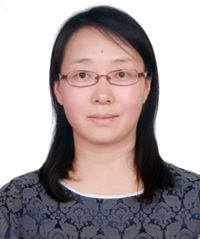
Qingfang ZHANG
Qingfang ZHANG, Is a Professor and doctoral supervisor in the Department of Psychology at Renmin University of China. Her research areas are psycholinguistics and cognitive neuroscience. She has conducted further research on the cognitive and neural mechanisms underlying the production of Chinese language and its aging process. She is member of the editorial board for Acta Psychologica Sinica and Chinese Journal of Phonetics, and the chief expert of the Major Program of the National Social Science Foundation of China. She has presided over several projects, including General Project supported by National Science Foundation of China, Project supported by the National Social Science Foundation of China, Project supported by the Key Program of the Social Science Foundation of Beijing, General Project supported by the Foundation of Ministry of education on Humanities and Social Sciences, and Key Project supported by National Language Committee. She has published a book, Language Production: Perspective of Psycholinguistics, and over 90 articles in domestic and international journals, such as Psychophysiology, Brain and Language, Cerebral Cortex, Biological Psychology, Bilingualism: Language and Cognition, Neuropsychologia, Journal of Cognitive Neuroscience, Quarterly Journal of Experimental Psychology, Applied Psycholinguistics, and Acta Psychologica Sinica.
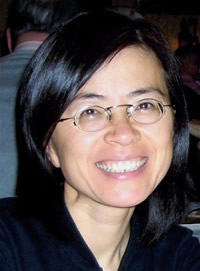
Rushen SHI
Rushen SHI, received her PhD in Linguistics from Brown University in the United States of America. After graduation, she was honored with the prestigious Isaak Walton Killam Postdoctoral Award, and conducted postdoctoral research in psycholinguistics at the University of British Columbia. She served as a Professor in the School of Audiology and Speech Sciences at the University of British Columbia. She is a Professor in the School of Cognitive Science and the Department of Psychology at the University of Quebec in Canada, the Director of the Language Research Center. She is committed to the research on the structure and use of human natural language, as well as language acquisition. The Psycholinguistics and Cognitive Science Laboratory founded and led by her has achieved remarkable accomplishments. It has been awarded grants from the Natural Sciences and Engineering Research Council of Canada (NSERC), the Social Sciences and Humanities Research Council of Canada (SSHRC), and the Fonds de recherche du Québec-Société et culture (FQRSC). She has also received a major infrastructure grant from the Canada Foundation for Innovation (CFI). The website of her research center is http://www.gr.uqam.ca.
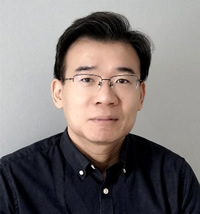
Weidong ZHAN
Weidong ZHAN, is a Professor and doctoral supervisor in the Department of Chinese Language and Literature, Peking University. He is serving as the Deputy Dean of Center for Chinese Linguistics, and the Deputy Director of Institute of Computational Linguistics, Peking University. His research areas lie in formal grammar of modern Chinese, language knowledge engineering and Chinese information processing, and applied linguistics. His representative publications include A Study of Constructing Rules of Phrases in Contemporary Chinese for Chinese Information Processing, National Language Standards General Rules for Writing Numerals in Public Texts, and its reference book Interpretation of General Rules for Writing Numerals in Public Texts. He has co-authored several textbooks, such as Introduction to Computational Linguistics, Modern Chinese, Natural Language Processing. He has published dozens of papers in the domestic and international journals. In recent years, his research interests mainly focus on database of construction resources in modern Chinese, and assessment of machine language comprehension capacities for cognitive intelligence. Personal homepage: https://ccl.pku.edu.cn/doubtfire/CV-DF-chinese.htm

Wen CAO
Wen CAO, is a Research Fellow, doctoral supervisor, postdoctoral supervisor and the Dean of the Faculty of Linguistic Sciences at Beijing Language and Culture University. He is also the vice director of the committee of the Phonetic Association, the Chinese Linguistics Association. He serves as a co-supervisor for PhD candidates at Palacký University Olomouc in Czech Public, University for Foreigners of Siena in Italy and University of Nantes in France. He has authored several books on phonetics, such as Prosodic Realization of Focal Accent in Standard Chinese, Questions and Answers on Modern Chinese Phonetics and Chinese Phonetics and its Acquisition. He has published dozens of papers. His research interests include phonetics, linguistic resource studies and teaching Chinese as a second language.

Yiya CHEN
Yiya CHEN, is a Professor of Phonetics at the Leiden University Centre for Linguistics and a senior researcher at the Leiden Institute for Brain and Cognition. In 2022, she became a member of the Academia Europaea. She graduated from Stony Brook University and has held short-term positions at Zhejiang University, Cornell University, New York University, the University of Edinburgh, and Radboud University Nijmegen. The broad goal of her research is to understand the linguistic structures and cognitive mechanisms underlying speech and speech communication. She is particularly interested in the phonetics and phonology of various Chinese dialects while also exploring typologically diverse languages, such as African languages and Dutch. Her current research focuses on tonal and intonational universals and specifics, as well as their roles in speech processing and second language acquisition. She adopts an interdisciplinary approach, drawing on experimental phonetics, psycholinguistics, and neurolinguistics. She serves on the editorial boards of the Journal of Phonetics, the Journal of the International Phonetic Association, the Oxford Research Encyclopedia of Linguistics, Laboratory Phonology, and the Chinese Journal of Phonetics.

Yueguo GU
Yueguo GU, is the chief expert at BFSU Artificial Intelligence and Human Language Lab. He was a Research Fellow at the Institute of Linguistics, Chinese Academy of Social Sciences(CASS), and a Chief Research Fellow of the Innovation Project at CASS. He was rewarded a master with distinction in language studies from the Department of Linguistics at Lancaster University in 1985, and got his PhD in pragmatics and rhetorics from the same department in 1987, under the supervision of Professor Geoffrey Leech, Fellow of the British Academy. His research interests mainly include gerontolinguistics, corpus linguistics, pragmatics, discourse analysis, and online education. He is serving as the editor-in-chief of Journal of ChinaCALL, and was the editor-in-chief of Contemporary Linguistics during 1988-2015. He is the Director of Computer-Assisted Language Learning Association, China Association for Comparative Studies of English and Chinese. He holds several adjunct academic positions, including the Distinguished Professor at the University of Nottingham in the UK, the External Academic Advisor to the Hong Kong Polytechnic University, Visiting Professor at the Western Sydney University in Australia, Visiting Professor of Instruction at Peter the Great St. Petersburg Polytechnic University, Distinguished Fellow at the University of Sydney in Australia, and Professor of Instruction at the National Taiwan University of Science and Technology.

Zhiqiang LI
Zhiqiang LI, is a Professor in the Department of Languages, Literatures, and Cultures at the University of San Francisco. He obtained a PhD in Linguistics from Massachusetts Institute of Technology(MIT). His research expertise includes phonology, phonetics and teaching Chinese phonology. He served as a committee member of International Association of Chinese Linguistics and the Chinese Language Teachers Association, USA, and the President of California Chinese Language Teachers Association. His publications include one single-author book, Studies in Acquisition and Teaching of Mandarin Chinese Phonology(2018), a co-authored book, Study of Chinese Intonation in Teaching Chinese as a Foreign Language(2021), and dozens of papers and reports on phonology, Chinese phonetics and teaching phonology.
No. 5 Jianguomen Inner Street, Dongcheng District, Beijing
Copyright © 2025 The First International Conference on Experimental Linguistics,ICEL2025
「 Website Design and Production:Provided by Weilai Technology 」